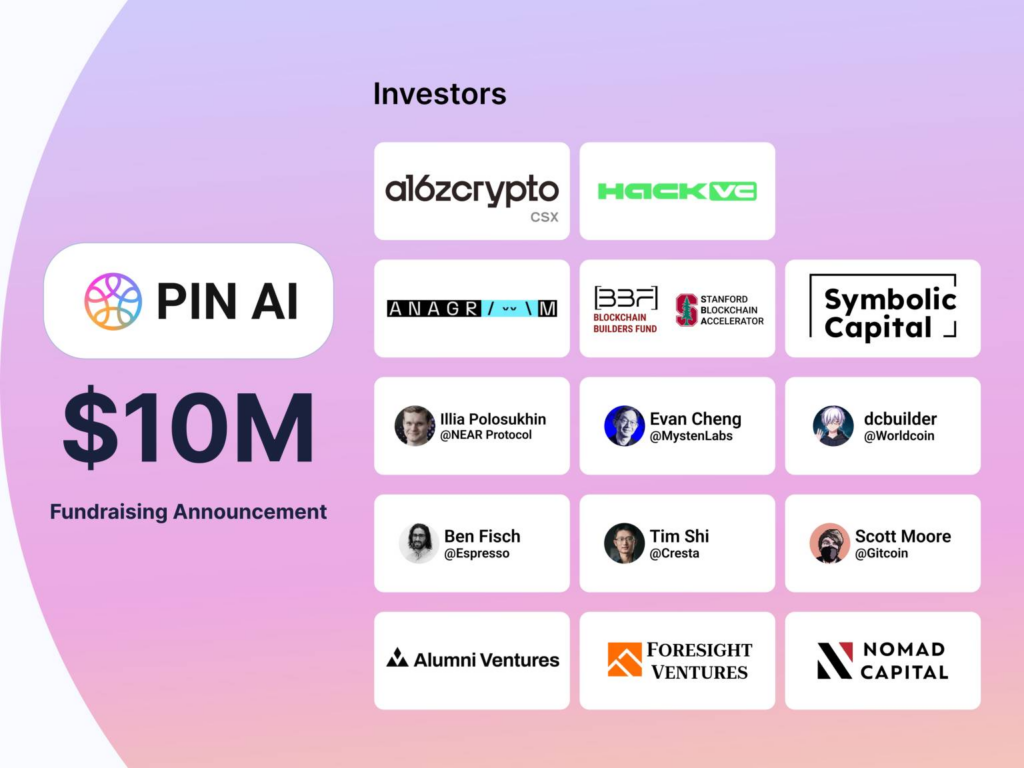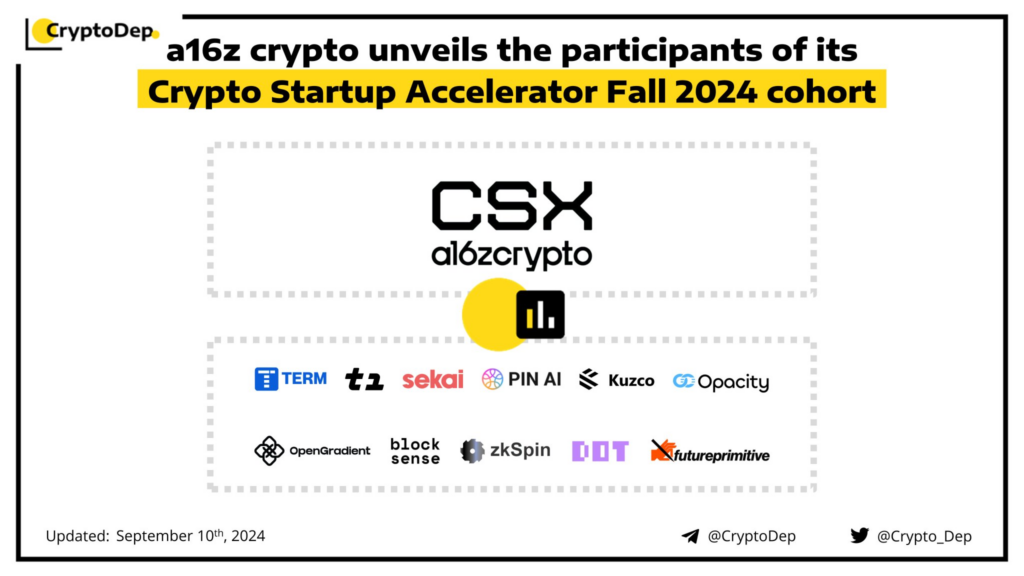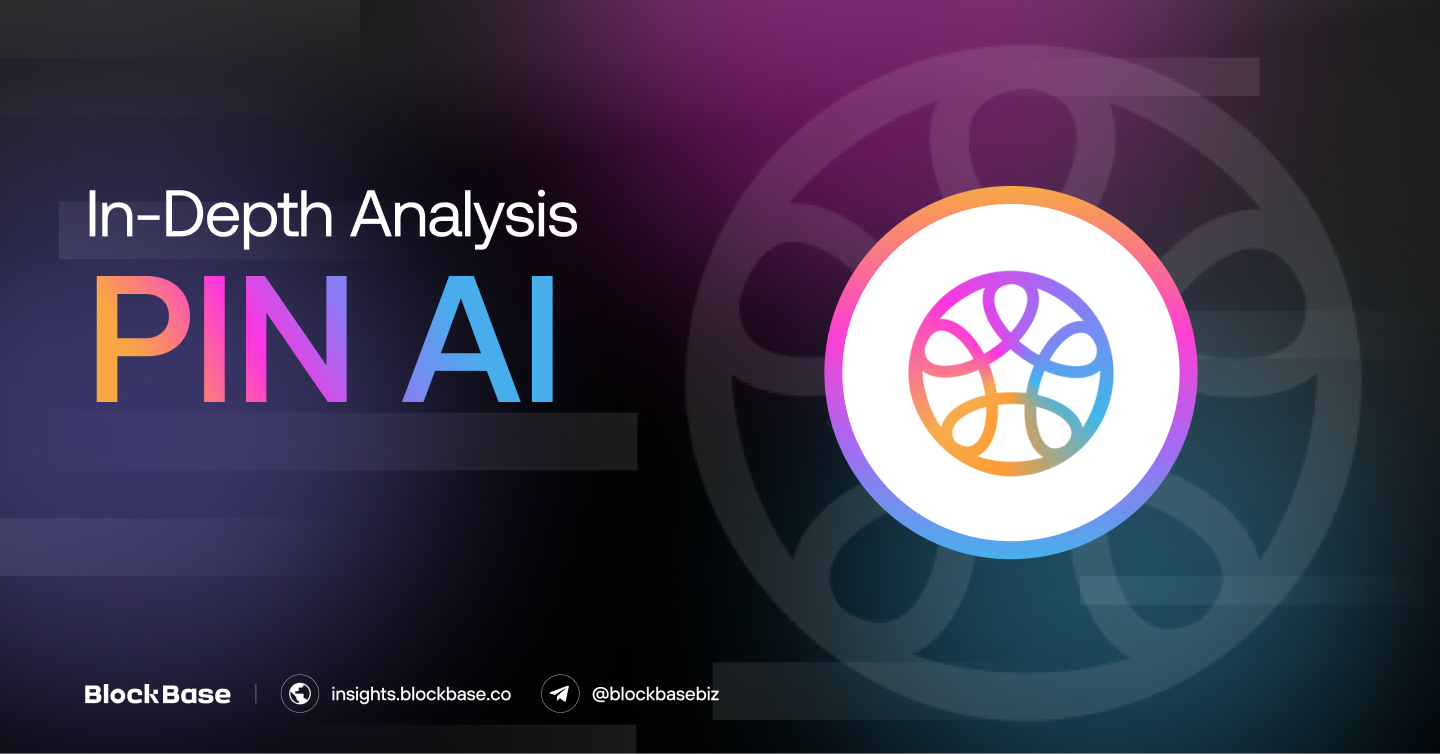1. Key Takeaways
- Innovative Platform: PIN AI introduces a novel open platform for Personal AI, combining privacy, ownership, and a decentralized approach to AI services.
- Crypto-Economic Security: The platform leverages blockchain technology for privacy and data ownership, providing a secure environment for personal data and AI interactions.
- Hybrid Models: PIN AI uses a hybrid approach that integrates on-device processing with cloud-based computation to balance privacy and performance.
- Economic Incentives: The protocol includes mechanisms for incentivizing data connections and valuable transactions, creating a two-sided market for users and AI services.
2. Introduction to PIN AI
PIN AI is a groundbreaking platform designed to provide Personal AI services with a strong emphasis on privacy, ownership, and decentralized security. The platform is built on the Personal Intelligence Network (PIN) and integrates open-source AI with Ethereum blockchain technology. It aims to create an ecosystem where Personal AIs can interact with External AIs while ensuring that user data remains private and secure. By leveraging advanced cryptographic techniques and decentralized storage solutions, PIN AI aspires to enhance the utility and personalization of AI applications for everyday tasks such as shopping, trip planning, and financial actions.
3. Founders and Background
PIN AI was founded by Davide Crapis, Bill Sun, and Ben Wu. Leading the team are co-founders Davide Crapis and Ben Wu. Crapis, formerly of Ethereum Core Research, leads Protocol Research with an impressive education at Bocconi University and a PhD at Columbia University.

Ben Wu, heading Strategy, is an MIT graduate, Y Combinator alum, and serial entrepreneur.

The technical leadership includes Bill Sun, a Stanford AI/Math PhD and early Google Brain researcher, as Chief AI Scientist, and Regan Peng, a CMU graduate and former lead at Didi Fintech and Yahoo Data Infra, as Founding Head of Engineering.

4. PIN AI: Thesis, Technical Components, Business Model
4.1. The Need for PIN AI: Addressing Privacy and Ownership in the Current AI Landscape
In the contemporary AI industry, users are increasingly concerned about their privacy and the ownership of their data. Traditional AI systems, especially those provided by major tech corporations, often operate within closed ecosystems where user data is commoditized, leading to significant privacy concerns and a lack of transparency regarding data usage. These systems typically impose high fees and restrictive practices that undermine user control and autonomy.
For instance, app stores charge substantial revenue fees, while data collected by AI platforms is often used to monetize user information without adequate compensation to the users themselves. PIN AI emerges as a solution to these pressing issues by offering an open-source, decentralized platform that prioritizes user privacy and data ownership.
By leveraging blockchain technology and integrating advanced cryptographic methods, PIN AI enables users to control and monetize their data, thus challenging the status quo of centralized data handling and high app fees. This approach not only fosters greater transparency but also provides users with tangible economic incentives, ensuring that their data is used responsibly and in a manner that benefits them directly. In a landscape where privacy and data ownership are becoming increasingly critical, PIN AI offers a much-needed innovation that aligns with modern concerns and the evolving demands of tech-savvy consumers.
4.2. PIN AI’s technical components
PIN AI operates on a three-layered architecture:
- Personal Data: Focuses on ensuring privacy and ownership of user data. It uses decentralized storage solutions and encryption to protect personal information while making it accessible for AI applications when needed.
- Personal AI: Functions as a user’s private assistant, integrating contextual data from the user’s device and external sources to provide personalized and useful interactions. It mediates between the user and External AIs, maintaining privacy throughout the process.
- External AIs: Represent an open market of AI services that can be accessed by Personal AIs. These services are designed to be integrated into the Personal AI ecosystem, enabling tasks that require more complex or broader capabilities than what can be provided on-device.
4.3. PIN AI’s business model and flywheel
PIN AI operates in a two-sided market where users and their AIs interact with External AIs to access services. The value and variety of these services grow with the amount of contextual data users provide. The platform features a proof-of-engagement protocol (PoE) that includes two main components:
- Data Connection Incentives: Users earn rewards for connecting their data to the network. Privacy is ensured through encryption, and Sybil resistance is achieved using cryptographic authentication, machine learning, and digital identities (e.g., WorldID).
- Proof of Valuable Transaction: Users receive rewards for completing valuable transactions with Agent Links, which must transfer economic value (crypto or fiat) and be verifiable on-chain (e.g., using zkTLS for fiat payments).
Ecosystem Participants:
- Users: Connect personal data and are incentivized while retaining privacy. Their data is used to enhance the services provided by External AIs.
- Data Connectors: Operate as part of the network infrastructure, earning rewards for connecting and managing data. They are secured by a staking and slashing mechanism.
- Agent Services: Created and deployed through Agent Links, leveraging user data to provide tailored services. Operators are incentivized through crypto-economic mechanisms.
In the future, users will pay for premium agent services, and these services will compensate the protocol for accessing personal data and user intents. Pricing will be determined by market dynamics based on supply and demand.

5. Project Builder Perspectives: Why should one care about PIN AI advancements?
From a project builder’s perspective, PIN AI offers several compelling reasons to get involved:
- Privacy and Ownership: The focus on user privacy and data ownership provides a strong ethical foundation and aligns with growing concerns about data security.
- Innovative Protocol: The PIN protocol introduces new mechanisms for data verification, secure storage, and economic incentives that can drive innovation in AI applications.
- Economic Opportunities: The platform’s crypto-economic model offers opportunities for developers to monetize their AI services through a decentralized market with transparent economic flows.
- Open Ecosystem: PIN AI’s commitment to open-source development and integration with existing Web2 applications provides a fertile ground for experimentation and growth.
Davide Crapis, Co-Founder leading Protocol Research claims that: “PIN AI will protect user freedom from big internet giants, take back the $100b+ profit made from control of user’s data and attention, and return it to the users themselves. Our platform empowers users to monetize and control their data, offering them the benefits that major tech giants like Apple previously dominated. Unlike Apple’s intelligence, our platform provides access to a broader range of AI agents, developed by the open-source community, capable of handling complex tasks across a wide array of popular apps used globally.”
By redirecting profits from users’ data and attention, it empowers users to regain control and monetize their data. The platform leverages personal, contextual data and cryptography, deploying cutting-edge AI models on-device to handle tasks across apps—like shopping, ordering food, wealth management, and interacting with centralized exchanges, DeFi, and prediction markets.

6. Funding and Ecosystem Development

San Francisco, CA – September 9, 2024, 9 AM PDT – PIN AI, a trailblazer in AI infrastructure, proudly announces the successful closure of its $10 million pre-seed funding round. This significant milestone supports the development of the world’s first open-source Personal Intelligence Network (PIN). Leading this round are Hack VC and a16z CSX, alongside a distinguished group of investors including Blockchain Builders Fund (Stanford Blockchain Accelerator), Illia Polosukhin (co-author of the Transformer paper and Founder of NEAR Protocol), Anagram/Lily Liu (President of SOL Foundation), Symbolic Capital (Co-Founder of Polygon), Evan Cheng (CEO of Mysten Labs/SUI), dcbuilder (Worldcoin Foundation), Foresight Ventures (parent company of The Block), Nomad Capital, Tim Shi (Co-Founder of AI unicorn Cresta.ai), Ben Fisch (CEO of Espresso), Scott Moore (Co-Founder of Gitcoin), Alumni Ventures (Top 20 VC according to CB Insights ’24), and Dispersion Capital (ex-Director of Samsung Next), among other prominent backers.
7. Current Progress On the Road to Market
With the vision of the PIN AI team, instead of big tech companies making money from your data, you’ll be able to earn tokens by sharing your data and using the platform. You control what data you share and with whom, while your privacy is protected. At the current launch, PIN AI is teaming up with partners like Worldcoin to broaden its user base. They will also introduce a new front-end product, similar to Siri, to make it easy for users to interact with their AI assistant.
The team is in a16z accelerator (formerly known as a16z crypto school) so the near future adjustment to the business model or roadmap may happen soon.

So far still, the founding team is working mainly and only hiring 1 CMO position in the business department.

8. Conclusion
PIN AI represents a significant leap forward in the evolution of personal AI technology and data privacy. By pioneering an open-source, Web3-enabled platform, PIN AI addresses critical issues facing users today—namely, the lack of control over personal data and the high fees imposed by traditional tech giants. Its innovative approach, which combines on-device AI with blockchain technology, ensures that users can manage complex tasks efficiently while maintaining full control over their data.
The platform’s unique proof-of-engagement model not only incentivizes users to share their data but also enables them to monetize it securely, shifting the power dynamics from big tech companies back to individuals. By partnering with prominent organizations and integrating advanced technologies, PIN AI is poised to redefine how we interact with AI and digital services.
The information provided in this article is for reference only and should not be taken as investment advice. All investment decisions should be based on thorough research and personal evaluation.





